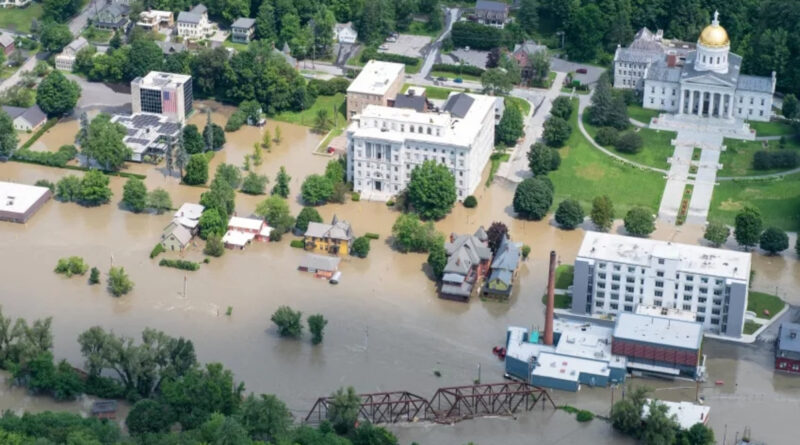The U.S. government has initiated legal action against the state of Vermont in an effort to dismantle its recently passed Climate Superfund Act. This law, enacted in May 2024, mandates that fossil fuel companies contribute to the cleanup costs associated with climate change impacts on the state. The federal suit, filed on September 15, 2023, claims that Vermont’s legislation infringes on federal authority and conflicts with U.S. foreign policy.
The Vermont Climate Superfund Act aims to hold fossil fuel companies accountable for the environmental damage they cause. According to Mike Pieciak, Vermont’s state treasurer, the act is essential for funding climate adaptation projects. “To support the health, safety, and prosperity of our communities, we must ensure Vermont is equipped financially to address the impacts of climate change,” Pieciak stated. He emphasized the law’s importance in light of recent widespread flooding that disproportionately affected low-income residents.
Secretary of Natural Resources Julie Moore echoed these sentiments, highlighting the significant consequences of climate change on both the environment and economy in Vermont. She mentioned that the state would rely on insights from experts to enforce the law effectively and hold fossil fuel companies accountable.
Despite these local efforts, the federal government is challenging Vermont’s authority in this matter. The legal brief submitted by the Justice Department describes the state law as a “lawless experiment” that undermines federal supremacy, arguing it “directly regulates conduct outside Vermont” with no clear connection to the state. The administration seeks a summary judgment, asserting that its case is indisputable.
This legal action is not the first confrontation between the federal government and states over climate accountability. Earlier this year, the Justice Department and the Environmental Protection Agency filed lawsuits against both Vermont and New York regarding their climate Superfund laws. Paul Burns, executive director of the Vermont Public Interest Research Group, remarked, “This law is about holding Big Oil accountable for a portion of the damage it has already brought to Vermont’s farms, businesses, homeowners, and communities.”
Advocates for the Vermont law assert that it aligns with the state’s rights to legislate for the welfare of its residents. Grace Oedel, executive director of the Northeast Organic Farming Association of Vermont, stated, “Vermont clearly has the right to raise funds and protect the well-being of its people.” She argues that the law is vital for funding adaptations necessary to combat the climate crisis impacting the state’s agricultural sector.
Scientific research increasingly supports the connection between fossil fuel emissions and severe weather events. A recent study published in the journal Nature indicates that climate change heightened the intensity of over 200 heat waves from 2000 to 2023, attributing significant contributions to emissions from 180 fossil fuel and cement producers.
The conflict has broader implications for state-federal relations, particularly in the context of climate policy. Critics of the federal administration perceive this legal action as part of a wider strategy to suppress state-led initiatives aimed at environmental protection. Kate Sinding Daly, senior vice president for law and policy at the Conservation Law Foundation, emphasized that Vermont’s legislation is not a sweeping effort to regulate global emissions but a legitimate exercise of the state’s rights to protect its residents.
As the case unfolds, Vermont remains firm in its commitment to defend the Climate Superfund Act. Local leaders and advocates maintain that the law is essential for securing financial resources needed to address the climate crisis, emphasizing the importance of accountability for those responsible for environmental degradation.





































































